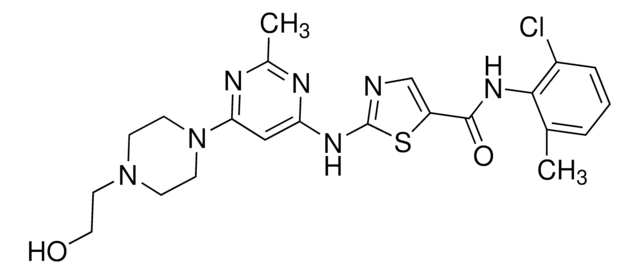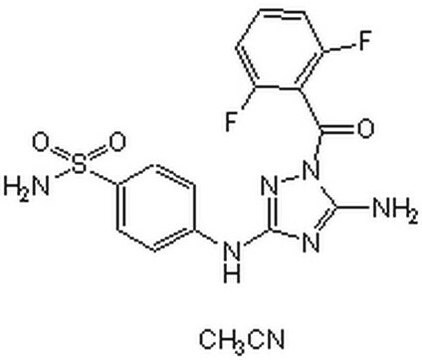推薦產品
生物源
rabbit
品質等級
抗體表格
purified antibody
抗體產品種類
primary antibodies
無性繁殖
polyclonal
純化經由
affinity chromatography
物種活性
human
技術
western blot: suitable
UniProt登錄號
運輸包裝
wet ice
目標翻譯後修改
phosphorylation (pSer358)
基因資訊
human ... MLKL(197259)
一般說明
Mixed lineage kinase domain-like protein (MLKL) is required for the execution of programmed necrosis. MLKL is a cell-permeable acrylamide compound that inhibits human, but not murine, MLKL adaptor function via covalent modification of Cys86. MLKL prevents the MLKL-RIP1-RIP3 necrosome complex from interacting with further downstream effectors.
This phospho-MLKL (Ser358) antibody set contains one vial of phospho-MLKL (Ser358) antibody and one vial of MLKL “Total” antibody.
RECOMMENDED USAGE:
It is recommended to first perform immunoprecipitation on your sample using the non-phosphorylated MLKL antibody for “total” MLKL protein isolation (see protocol section on page 2 of the Certificate of Analysis); then use the immunoprecipitated sample to detect the phosphorylated protein using the phospho-MLKL (Ser358) antibody via western blot.
RECOMMENDED USAGE:
It is recommended to first perform immunoprecipitation on your sample using the non-phosphorylated MLKL antibody for “total” MLKL protein isolation (see protocol section on page 2 of the Certificate of Analysis); then use the immunoprecipitated sample to detect the phosphorylated protein using the phospho-MLKL (Ser358) antibody via western blot.
特異性
When used together and under the “Recommended Usage” instructions, this antibody set will detect MLKL phosphorylated at Ser358.
免疫原
Epitope: Ser358
Linear peptide corresponding to the Protein Kinase Domain of phospho-MLKL (Ser358).
應用
Western Blot Analysis:
Untreated HT-29 cell lysates or lysates from HT-29 cells treated with Cycloheximide,Z-VAD-FMK and TNF alpha were first immunoprecipitated using the Anti-MLKL “total” antibody (1:1000 dilution) to isolate the MLKL protein.
The isolated “total” MLKL protein sample was then probed with Anti-phospho-MLKL (Ser358) (1:1000 dilution).
Untreated HT-29 cell lysates or lysates from HT-29 cells treated with Cycloheximide,Z-VAD-FMK and TNF alpha were first immunoprecipitated using the Anti-MLKL “total” antibody (1:1000 dilution) to isolate the MLKL protein.
The isolated “total” MLKL protein sample was then probed with Anti-phospho-MLKL (Ser358) (1:1000 dilution).
Anti-phospho-MLKL (Ser358) Antibody Set is an antibody set against phospho-MLKL (Ser358) for use in WB.
成分
One vial of phospho-MLKL (Ser358) antibody
One vial of MLKL “Total” antibody
One vial of MLKL “Total” antibody
品質
Anti- MLKL (Total Antibody): Evaluated by Immunoprecipitation on HT-29 cell lysates.
Anti-phospho-MLKL (Ser358) Antibody: Evaluated by Dot Blot on phosphorylated and non-phosphorylated MLKL peptides.
Anti-phospho-MLKL (Ser358) Antibody: Evaluated by Dot Blot on phosphorylated and non-phosphorylated MLKL peptides.
標靶描述
~54 kDa
外觀
100 µL of Anti-phospho-MLKL (Ser358) purified polyclonal antibody in 0.1 M Tris-Glycine (pH 7.4), 150 mM NaCl, with 0.05% sodium azide.
100 µg (concentration: 1 mg/mL) of Anti- MLKL purified polyclonal antibody in 0.1 M Tris-Glycine (pH 7.4), 150 mM NaCl, with 0.05% sodium azide.
100 µg (concentration: 1 mg/mL) of Anti- MLKL purified polyclonal antibody in 0.1 M Tris-Glycine (pH 7.4), 150 mM NaCl, with 0.05% sodium azide.
其他說明
Concentration: Please refer to the Certificate of Analysis for the lot-specific concentration.
未找到適合的產品?
試用我們的產品選擇工具.
儲存類別代碼
12 - Non Combustible Liquids
閃點(°F)
Not applicable
閃點(°C)
Not applicable
分析證明 (COA)
輸入產品批次/批號來搜索 分析證明 (COA)。在產品’s標籤上找到批次和批號,寫有 ‘Lot’或‘Batch’.。
Abdulrahman Allaf et al.
Cold Spring Harbor molecular case studies, 8(4) (2022-06-23)
Schwannomatosis is a rare genetic disorder that predisposes individuals to development of multiple schwannomas mainly in spinal and peripheral nerves and to debilitating chronic pain often unrelated to any schwannoma. Pathogenic variants of two genes, SMARCB1 and LZTR1, are causal
R S Al-Lamki et al.
Cell death & disease, 7(6), e2287-e2287 (2016-07-01)
We previously reported that renal clear cell carcinoma cells (RCC) express both tumor necrosis factor receptor (TNFR)-1 and -2, but that, in organ culture, a TNF mutein that only engages TNFR1, but not TNFR2, causes extensive cell death. Some RCC
Qiong Wang et al.
Translational oncology, 13(2), 372-382 (2019-12-31)
The efficacy of chemotherapeutic agents in killing cancer cells is mainly attributed to the induction of apoptosis. However, the tremendous efforts on enhancing apoptosis-related mechanisms have only moderately improved lung cancer chemotherapy, suggesting that other cell death mechanisms such as
我們的科學家團隊在所有研究領域都有豐富的經驗,包括生命科學、材料科學、化學合成、色譜、分析等.
聯絡技術服務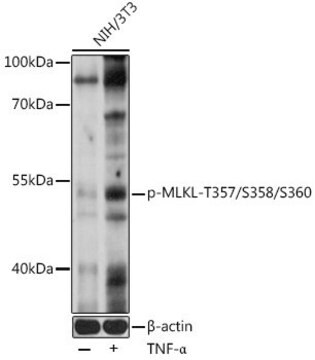
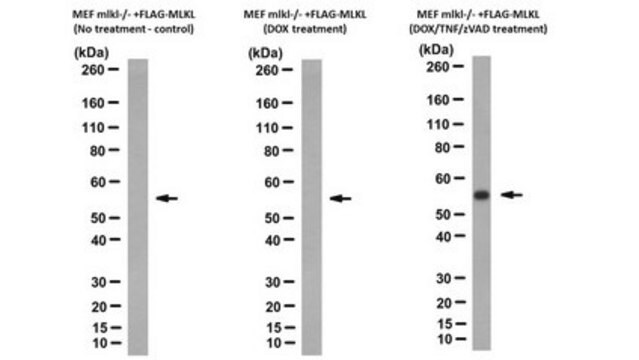

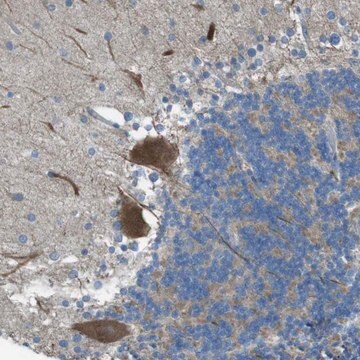

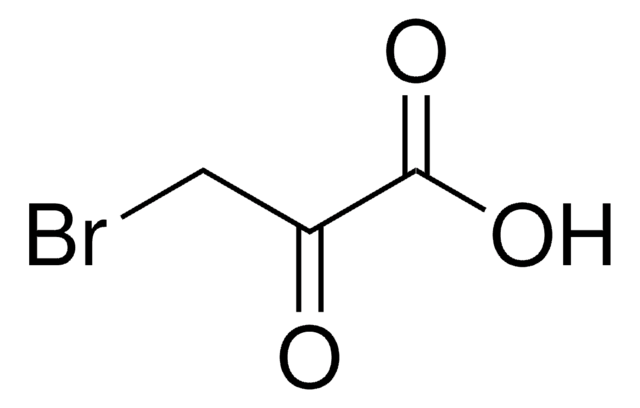
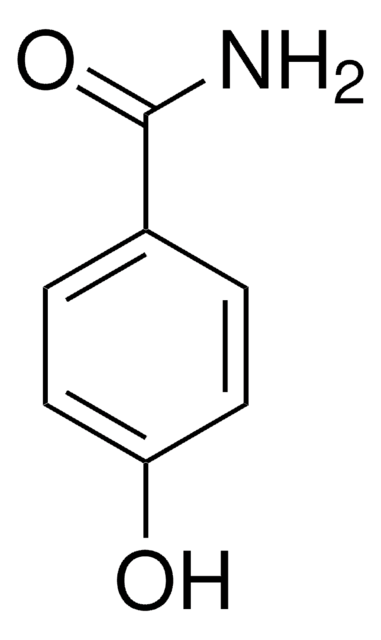
![7-Cyclopentyl-5-(4-phenoxyphenyl)-7H-pyrrolo[2,3‑d]pyrimidin-4-ylamine ≥98% (HPLC)](/deepweb/assets/sigmaaldrich/product/structures/373/481/73848ea9-b1fa-4ae5-8cf0-d135386891ae/640/73848ea9-b1fa-4ae5-8cf0-d135386891ae.png)
